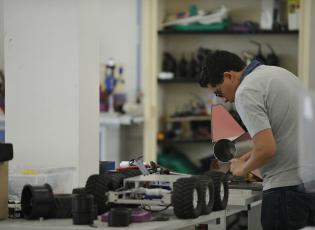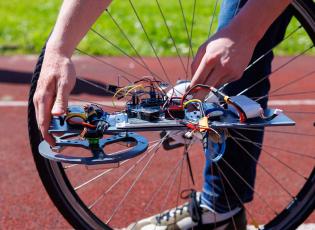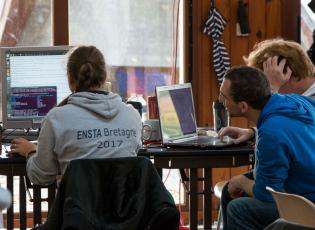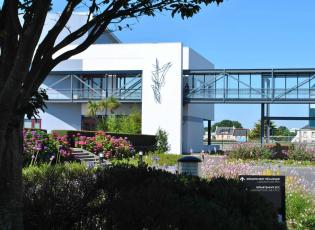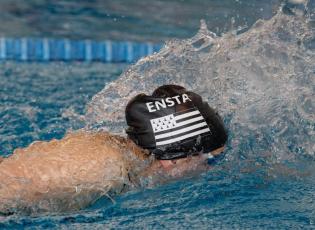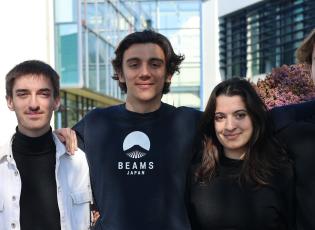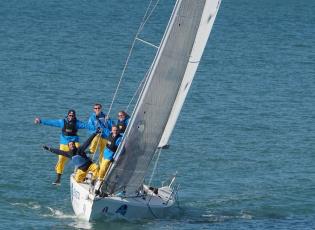
Co-operative (apprentice) learning program and calendar
The periods at ENSTA Bretagne are quite substantial:
- approx. 2-4 months on-campus then in the workplace for the first two years
- about 6 months at school/6 months in company in the third year
They enable the student engineers to be assigned to important areas of expertise, and to be entrusted with activities which are compatible with their level of responsibility.
The academic periods: The idea of the academic periods is to acquire and improve fundamental knowledge. In addition, they teach engineering sciences and technologies (concepts, principles and methods)for purely technical areas and those relative to company integration and exercising responsibilities.
The professional periods are the opportunity to apply the operational problem solving skills to a real life situation with direct exposure to risks. They enable the concepts, principles and methods learned during the academic periods to be applied and encourages their critical analysis, and even suggestions on how to modify the lessons.
Being part of the time in a company, alternating theory and practice was really enriching. What’s more, we are paid; which is important to be able to finish our studies. We are operational more quickly which is a plus for the company which will recruit us. It is up to us to prove ourselves.
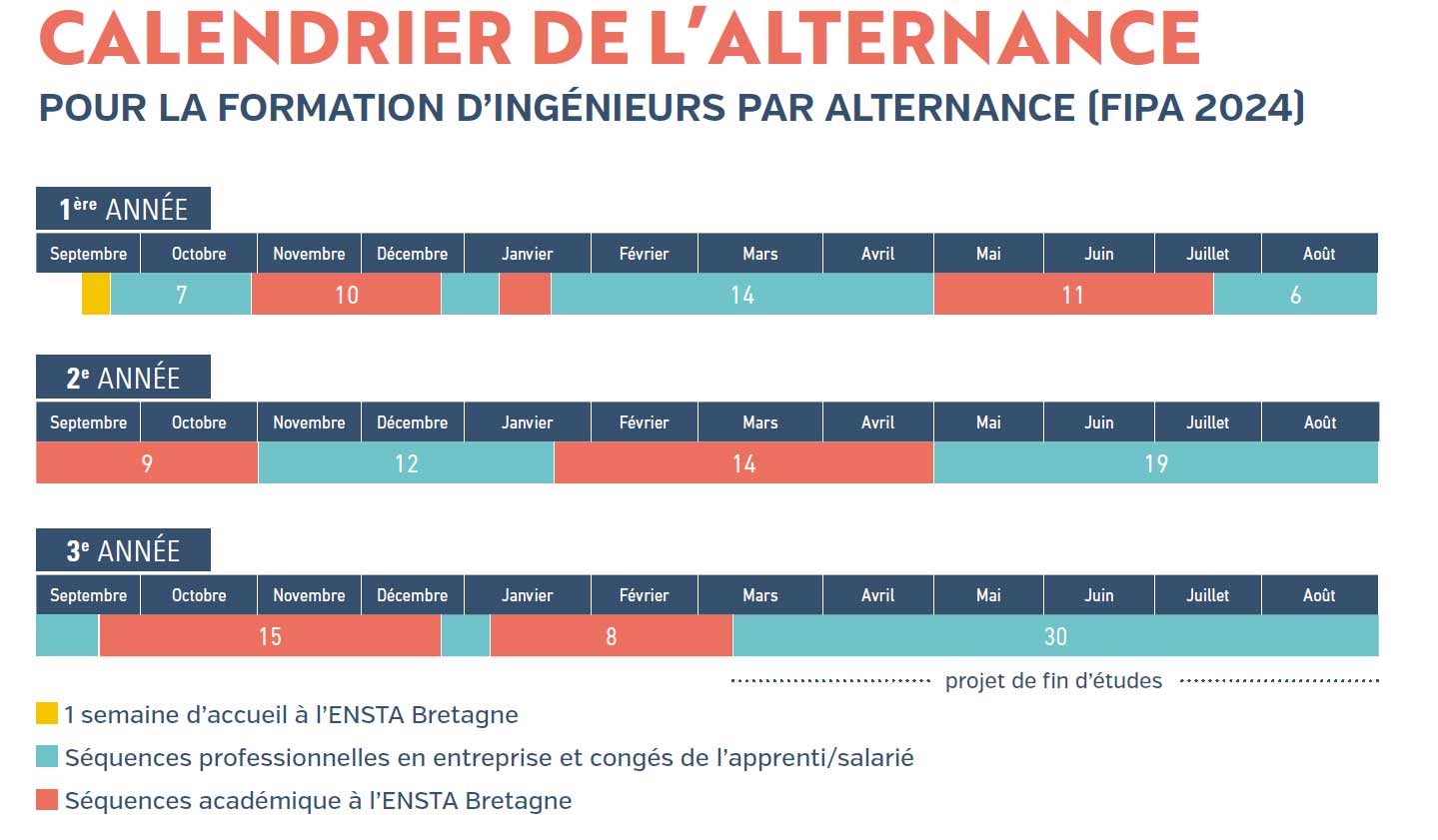
Application Fees and Tuition Fees for "diplôme d'ingénieur" (i.e. MSc in Eng.)
Course fees include tuition, supervision and use of facilities (but not accommodation)
Application and tuition fees for the engineering course - 2024/2025 academic year
These amounts, set by decree, apply to students starting their course after July 1, 2024.
Tuition fees are indexed each year to the national consumer price index (excluding tobacco) for France, as published by the INSEE.
| EU students |
Non-EU students |
Organization | |
|---|---|---|---|
| Application fee (1) | 30 €* | 30 € | |
| Tuition (2) (3) | 2 300 € / year | 4 338 € / year | 12 000 € / year |
Application fees - payment should be made before the application deadline at the very latest (after pre-enrolment on line). Any incomplete application file will not go before the jury.
Tuition fees must be paid before the start of the academic year. They trigger the issue of a student card.
The exemptions and special cases listed below apply to the 2024/2025 school year.
(1) Application fee waiver eligibility:
- Students enrolled through the Mines-Telecom entrance exam
- IETA students (military)
(2) Special tuition cases:
- Tuition fee waiver eligibility: IETA students (military), students coming from ENSTA Bretagne’s international partner establishments or the Brafitec or Arfitec networks
- Students belonging to the Science Without Borders network pay a tuition fee of €400 per year.
(3) Payment of the deposit
Candidates on the main list admitted on the basis of a written application must confirm their enrolment within one month, and admitted candidates on the complementary list must do so within 15 days. These are default deadlines and should not be taken into account if the school communicates another deadline. To confirm their enrolment, candidates must pay a non-reimbursable deposit of €500. Payment is made online (see link below).
Payment Methods
You can pay:
- via secure on line payment through your personal on line space (Aurion)
- For all other payment methods, please contact Laurent Gogé, Accounting Officer (payments): contact details below
Scholarships
Please submit your grant application forms to the Regional Center for Student Affairs (Crous) of the local education authority where you are studying and in accordance with the applicable terms at the French Ministry of Higher Education (Rennes Crous for students already here).
The means-tested grant is awarded to students in material hardship. It represents assistance in addition to support provided by the family. It cannot replace the requirement that parents must continue to provide child maintenance – even once their offspring have reached adulthood – while the latter are unable to provide for themselves.
The grants are awarded to:
- French students
- students from a European Union member state who meet one of the following criteria:
- have worked in France on a full- or part-time basis
- have one parent (father, mother or legal guardian) who has earned an income in France
- can justify being in France on a continuous basis for at least one year on September 1.
- foreign students benefiting from refugee or stateless person status, as recognized by the French Office for the Protection of Refugees and Stateless Persons (OFPRA)
- foreign students who have been residing in France for at least 2 years and whose tax household (father, mother, legal guardian) has therefore been situated in France for at least 2 years.
There is an exception for foreign students on the condition that they have lived and have had a fiscal household in France for at least two years.
How does it work?
The grant amount is determined pursuant to a national scale subject to the student regularly attending classes, attending exams and making progress. Age-, qualification- and nationality-related criteria are also applied. To determine whether you are eligible for a grant and the level considered, the criteria are studied and support points awarded depending on the family’s income, number of dependent children and distance from the place of study.
To find out whether you are eligible, you can run a simulation on the CROUS grant simulator.
To complete the student social record (DSE), click on this link: My student services
You will be able to confirm your right to receive a grant by fully registering at ENSTA Bretagne (Aurion personal space completed, student services fee [CVEC] proof of payment uploaded).
Should you receive a conditional approval from the Crous, you will need to upload this to your Aurion personal space to validate your DSE.
If you have any questions about grants, please contact Ms Cabon.
contact
Competitive athletes
Achieving success in both areas is no easy feat, and many factors have to be taken into consideration. In terms of their athletic activity, students must focus on their technical and physical skills, fitness, and their competitors. Added to these concerns are the demands of high-level studies, entrance examinations, building on prior education, and defining a career path.
In light of these pressures, ENSTA Bretagne has simplified admission procedures for competitive athletes and, if necessary, can allot them extra time to complete their studies. Athletes enrolling in their 1st year at ENSTA Bretagne can complete their degree in 4 or 5 years rather than the usual 3, and can also benefit from flexibility in their class schedules.
Within the context of the welcome we provide competitive athletes, ENSTA Bretagne has signed an agreement for sailors with Pôle Excellence de Voile in Brest.
contact
Entrepreneurship: learning to build a business
Undergraduate and graduate entrepreneurs at ENSTA Bretagne are accompanied by an advisor who informs them of training opportunities and competitions, and offers guidance for their project.
When the time comes for them to make the transition from project to start-up, entrepreneurs can join ENSTA Bretagne's business incubator.
ENSTA Bretagne is a partner of Pépite Bretagne Loire, and upon request, eligible students can benefit from national étudiant entrepreneur (student entrepreneur) status.
This status entitles them to support for their project from a professor and an external advisor as well as to a wide range of once-weekly entrepreneurship classes (accounting, social media strategies, etc.), and also enables them to begin networking.
Thanks to this status, students have access to the tools required to move their project from the idea stage to business launch.
The CDEFI*-certified Business Skills program, open since September 2016 to ENSTA Bretagne PhD students, delivers 70 hours of theoretical Human and Social Science classes as well as a minimum of 30 hours of professional experience. Training is structured around 15 skills, including business operations, project management, innovation, English, etc. The validation of 8 of these skill sets earns participants a certificate (pending their dissertation defense).
*CDEFI: Conférences des Directeurs des Écoles Françaises d'Ingénieurs
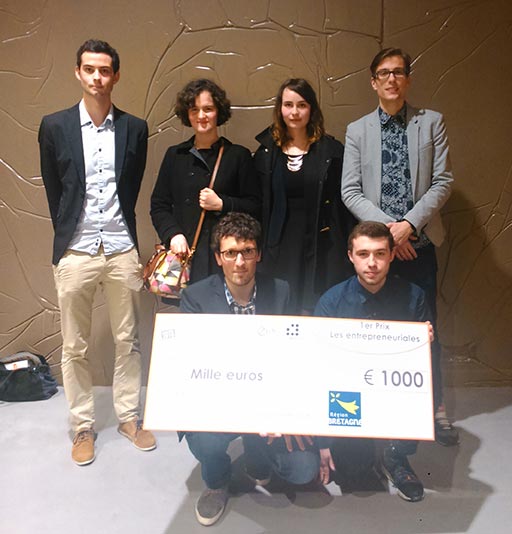
Entrepreneurship competitions
Every year, ENSTA Bretagne offers students opportunities to voluntarily participate in competitions. One of these, the national Entrepreneuriales event, challenges groups of undergraduate and graduate students to create a real or fictitious company in 5 months.
The competition is based on the concept of learning through doing. Weekly evening conferences help aspiring entrepreneurs manage various project parameters such as market studies, financing, legal frameworks, pricing policy, distribution, etc.
Groups are accompanied by professionals who support them throughout the evolution of their project. The competition culminates in an evening event during which teams present their projects to a jury of experts. The 1st-prize winner from each region goes on to participate in the national finals.
ENSTA Bretagne students receive regular recognition at this event, winning the Grand Prix Bretagne in 2014 and 2016 and the Prix de l'Innovation Sociale in 2014, among others.
The Engineering and Business Science major: the right tools for building a business
Created in 2010 in response to the needs of businesses in the public and private sectors, the Engineering and Business Science major trains students to combine technical and managerial skills. Numerous visiting professional lecturers participate in courses on project and human resources management, business strategy, the innovation process, etc.
The program offers future entrepreneurs a wide array of practical techniques and methods and feedback from actual business owners, thanks to the participation of sector professionals (for example, the director of a crowd-funding platform and an innovation manager).







